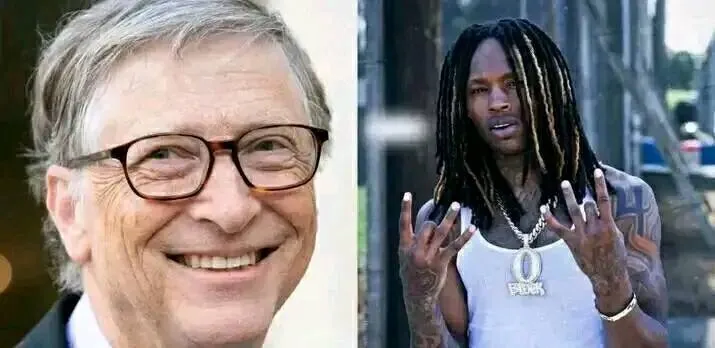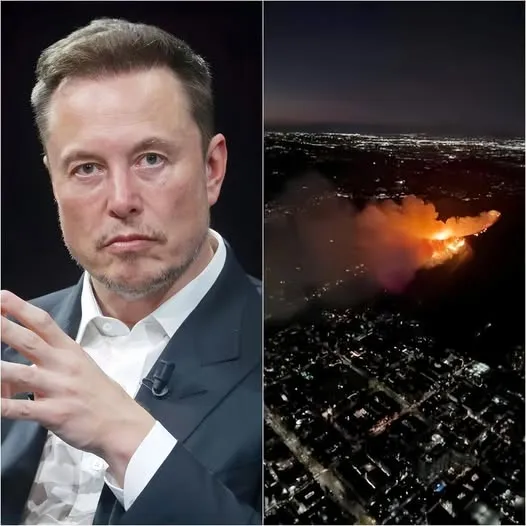
Elon Musk, the CEO of SpaceX and founder of Starlink, has raised serious concerns about the difficulties his telecommunications company faces in obtaining a license to operate in South Africa. His grievance, however, isn’t merely about regulatory challenges or business competition.
Instead, Musk has publicly claimed that Starlink’s inability to secure the necessary operating license is a consequence of his own race, as he is not black. This provocative statement, which he shared with his vast audience on social media platform X (formerly known as Twitter), has sparked significant attention and controversy.
In his post, Musk pointed to political developments in South Africa, suggesting that his race—specifically his being a white man—was a determining factor in preventing Starlink from offering its satellite internet service in the country. His comments went beyond a typical business complaint, delving into a deeper and more charged narrative about race, politics, and the future of business in South Africa.

Musk’s statement on X began with a pointed remark about the state of racial tensions in South Africa. He accused a major political party in the country of actively promoting what he termed “white genocide.”
Citing a video from the previous day, Musk claimed that a large crowd in an arena was heard chanting about killing white people. He seemed to draw a direct connection between such political movements and the business challenges his company was facing.
“Very few people know that there is a major political party in South Africa that is actively promoting white genocide. The video below was just yesterday. A whole arena chanting about killing white people,” Musk wrote, attaching a link to the video. His message, heavily laden with political accusations, painted a grim picture of South Africa’s political landscape.
Furthermore, Musk highlighted a controversial piece of legislation passed a month ago by the South African government. According to Musk, the law would allow for the government to seize property from white people without compensation.
In his post, Musk questioned the lack of international outrage and media coverage of this development, implying that there was a conspiracy to silence certain narratives about the treatment of white people in the country.

Musk’s comments didn’t stop there. He then went on to claim that the reason Starlink could not obtain the necessary license to operate in South Africa was, in his view, tied to his race. “Starlink can’t get a license to operate in South Africa simply because I’m not black. How is that right?” Musk asked in an accusatory tone, suggesting that racial discrimination was at play in South Africa’s telecommunications policies.
This claim was not the first time Musk had expressed such frustration. Earlier in the month, he had made similar statements on X, accusing the South African government of blocking Starlink’s operations due to his race.
His comments elicited strong reactions from various quarters, including from South Africa’s Department of Foreign Affairs.
Clayson Monyela, a senior official at the South African Department of Foreign Affairs, responded directly to Musk’s claim, refuting the idea that race was a factor in the government’s decision. “Starlink is not allowed to operate in South Africa because I’m not black,” Musk had posted earlier, to which Monyela retorted, “Sir, that’s NOT true & you know it! It’s got nothing to do with your skin colour. Starlink is welcome to operate in South Africa provided there’s compliance with local laws.”

Monyela’s response was a firm rejection of Musk’s racial claims. He emphasized that international trade and investment principles govern the situation, suggesting that the issue was related to compliance with local regulations, not racial bias.
The South African government official’s response also noted that telecommunications businesses in the country must adhere to Black Economic Empowerment (BEE) rules, which require companies to sell at least 30% of their equity in local subsidiaries to historically marginalized groups, including black South Africans.
Musk’s comments appeared to be an attempt to push back against these rules, which he seemed to view as a form of racial discrimination that unfairly complicated Starlink’s ability to expand into the South African market. In response, SpaceX, the parent company of Starlink, sent a letter to South Africa’s telecommunications regulator, ICASA (Independent Communications Authority of South Africa), urging the agency to reconsider the 30% ownership requirement for telecommunications licensees.
SpaceX argued that the requirement was an impediment to international companies wishing to operate in South Africa.
However, ICASA made it clear that it had not received any formal application from either SpaceX or Starlink to operate within the country. “ICASA has not received any application from Starlink or SpaceX,” the agency stated in an official statement, implying that Musk’s claims might have been premature or based on misunderstandings about the regulatory process.

This situation has sparked a wider debate about race, business, and politics in South Africa. The Black Economic Empowerment policy, which has been in place for many years, is designed to address historical injustices and give black South Africans a more equitable stake in the economy.
Critics of the policy, however, argue that it can be seen as a form of reverse discrimination, putting international businesses at a disadvantage when they attempt to operate in the country.
Musk’s claims about being excluded from the South African market due to his race have certainly raised eyebrows, with some seeing it as an attempt to draw attention to broader issues of race and politics in the country. Others, however, view it as a reflection of Musk’s broader narrative, which often challenges established norms and questions the status quo, whether in business, politics, or social issues.
Regardless of the underlying motivations, the controversy surrounding Musk’s statements about Starlink’s struggles in South Africa has opened up a broader conversation about race, economic empowerment, and the balance between business interests and local laws. It remains to be seen whether Musk’s claims will lead to any tangible changes in South Africa’s regulatory environment, or whether the conversation will fade into the background of larger geopolitical issues.
One thing is clear: Elon Musk’s voice, especially when it comes to matters as contentious as race and business, will continue to spark strong reactions, both for and against his perspectives. As South Africa moves forward with its policies on economic empowerment, it seems that the discussion over the balance between global investment and local laws will remain a central issue.
Whether Starlink eventually secures the right to operate in South Africa, or whether Musk’s race continues to be a focal point, the debate is likely to persist for some time to come.
-1742546790-q80.webp)
-1742812503-q80.webp)

